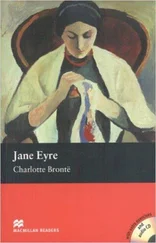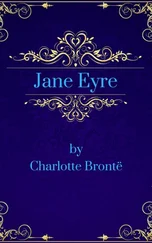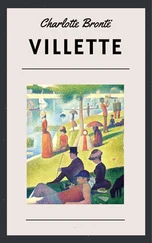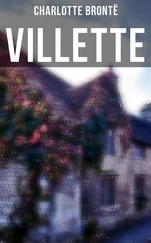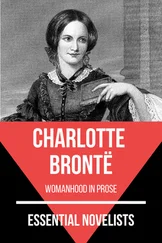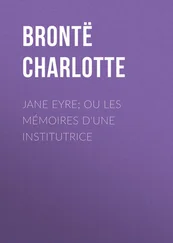“I know it well; therefore I proceed almost as freely as if I were writing my thoughts in a diary. You would say, I should have been superior to circumstances; so I should — so I should; but you see I was not. When fate wronged me, I had not the wisdom to remain cool: I turned desperate; then I degenerated. Now, when any vicious simpleton excites my disgust by his paltry ribaldry, I cannot flatter myself that I am better than he: I am forced to confess that he and I are on a level. I wish I had stood firm — God knows I do! Dread remorse when you are tempted to err, Miss Eyre; remorse is the poison of life.”
“Repentance is said to be its cure, sir.”
“It is not its cure. Reformation may be its cure; and I could reform — I have strength yet for that — if — but where is the use of thinking of it, hampered, burdened, cursed as I am? Besides, since happiness is irrevocably denied me, I have a right to get pleasure out of life: and I will get it, cost what it may.”
“Then you will degenerate still more, sir.”
“Possibly: yet why should I, if I can get sweet, fresh pleasure? And I may get it as sweet and fresh as the wild honey the bee gathers on the moor.”
“It will sting — it will taste bitter, sir.”
“How do you know? — you never tried it. How very serious — how very solemn you look: and you are as ignorant of the matter as this cameo head” (taking one from the mantelpiece). “You have no right to preach to me, you neophyte, that have not passed the porch of life, and are absolutely unacquainted with its mysteries.”
“I only remind you of your own words, sir: you said error brought remorse, and you pronounced remorse the poison of existence.”
“And who talks of error now? I scarcely think the notion that flittered across my brain was an error. I believe it was an inspiration rather than a temptation: it was very genial, very soothing — I know that. Here it comes again! It is no devil, I assure you; or if it be, it has put on the robes of an angel of light. I think I must admit so fair a guest when it asks entrance to my heart.”
“Distrust it, sir; it is not a true angel.”
“Once more, how do you know? By what instinct do you pretend to distinguish between a fallen seraph of the abyss and a messenger from the eternal throne — between a guide and a seducer?”
“I judged by your countenance, sir, which was troubled when you said the suggestion had returned upon you. I feel sure it will work you more misery if you listen to it.”
“Not at all — it bears the most gracious message in the world: for the rest, you are not my conscience-keeper, so don’t make yourself uneasy. Here, come in, bonny wanderer!”
He said this as if he spoke to a vision, viewless to any eye but his own; then, folding his arms, which he had half extended, on his chest, he seemed to enclose in their embrace the invisible being.
“Now,” he continued, again addressing me, “I have received the pilgrim — a disguised deity, as I verily believe. Already it has done me good: my heart was a sort of charnel; it will now be a shrine.”
“To speak truth, sir, I don’t understand you at all: I cannot keep up the conversation, because it has got out of my depth. Only one thing, I know: you said you were not as good as you should like to be, and that you regretted your own imperfection; — one thing I can comprehend: you intimated that to have a sullied memory was a perpetual bane. It seems to me, that if you tried hard, you would in time find it possible to become what you yourself would approve; and that if from this day you began with resolution to correct your thoughts and actions, you would in a few years have laid up a new and stainless store of recollections, to which you might revert with pleasure.”
“Justly thought; rightly said, Miss Eyre; and, at this moment, I am paving hell with energy.”
“Sir?”
“I am laying down good intentions, which I believe durable as flint. Certainly, my associates and pursuits shall be other than they have been.”
“And better?”
“And better — so much better as pure ore is than foul dross. You seem to doubt me; I don’t doubt myself: I know what my aim is, what my motives are; and at this moment I pass a law, unalterable as that of the Medes and Persians, that both are right.”
“They cannot be, sir, if they require a new statute to legalise them.”
“They are, Miss Eyre, though they absolutely require a new statute: unheard-of combinations of circumstances demand unheard-of rules.”
“That sounds a dangerous maxim, sir; because one can see at once that it is liable to abuse.”
“Sententious sage! so it is: but I swear by my household gods not to abuse it.”
“You are human and fallible.”
“I am: so are you — what then?”
“The human and fallible should not arrogate a power with which the divine and perfect alone can be safely intrusted.”
“What power?”
“That of saying of any strange, unsanctioned line of action, — ‘Let it be right.’”
“‘Let it be right’ — the very words: you have pronounced them.”
“May it be right then,” I said, as I rose, deeming it useless to continue a discourse which was all darkness to me; and, besides, sensible that the character of my interlocutor was beyond my penetration; at least, beyond its present reach; and feeling the uncertainty, the vague sense of insecurity, which accompanies a conviction of ignorance.
“Where are you going?”
“To put Adèle to bed: it is past her bedtime.”
“You are afraid of me, because I talk like a Sphynx.”
“Your language is enigmatical, sir: but though I am bewildered, I am certainly not afraid.”
“You are afraid — your self-love dreads a blunder.”
“In that sense I do feel apprehensive — I have no wish to talk nonsense.”
“If you did, it would be in such a grave, quiet manner, I should mistake it for sense. Do you never laugh, Miss Eyre? Don’t trouble yourself to answer — I see you laugh rarely; but you can laugh very merrily: believe me, you are not naturally austere, any more than I am naturally vicious. The Lowood constraint still clings to you somewhat; controlling your features, muffling your voice, and restricting your limbs; and you fear in the presence of a man and a brother — or father, or master, or what you will — to smile too gaily, speak too freely, or move too quickly: but, in time, I think you will learn to be natural with me, as I find it impossible to be conventional with you; and then your looks and movements will have more vivacity and variety than they dare offer now. I see at intervals the glance of a curious sort of bird through the close-set bars of a cage: a vivid, restless, resolute captive is there; were it but free, it would soar cloud-high. You are still bent on going?”
“It has struck nine, sir.”
“Never mind, — wait a minute: Adèle is not ready to go to bed yet. My position, Miss Eyre, with my back to the fire, and my face to the room, favours observation. While talking to you, I have also occasionally watched Adèle (I have my own reasons for thinking her a curious study, — reasons that I may, nay, that I shall, impart to you some day). She pulled out of her box, about ten minutes ago, a little pink silk frock; rapture lit her face as she unfolded it; coquetry runs in her blood, blends with her brains, and seasons the marrow of her bones. ‘Il faut que je l’essaie!’ cried she, ‘et à l’instant même!’ and she rushed out of the room. She is now with Sophie, undergoing a robing process: in a few minutes she will re-enter; and I know what I shall see, — a miniature of Céline Varens, as she used to appear on the boards at the rising of — But never mind that. However, my tenderest feelings are about to receive a shock: such is my presentiment; stay now, to see whether it will be realised.”
Читать дальше

